As the year comes to an end, car dealers are clearing inventory and making a final push to meet annual sales targets. This is when discounts on car prices are often significant and promotional activities are more abundant. Especially this year, the impact of price wars has made the phenomenon of trading price for volume even more apparent. Whether it’s traditional fuel vehicles or new energy vehicles, they have all started their final push after entering December.
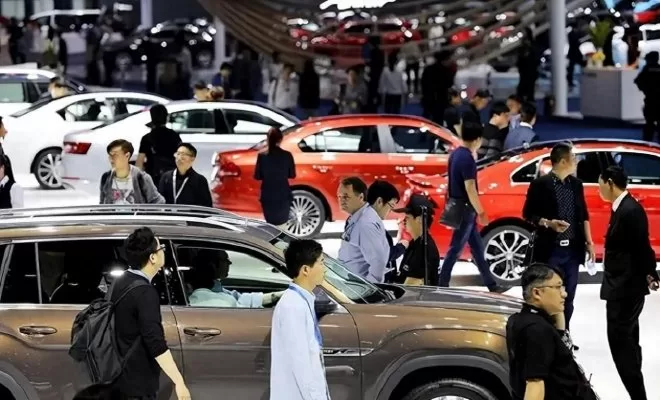
According to incomplete statistics, in December 2023, nearly 20 car companies announced another round of price reductions for their models, including but not limited to Xiaopeng, SAIC Volkswagen, SAIC General Motors, Xpeng, BYD, NIO, Deep Blue, Leapmotor, Zhiji, and FAW Toyota. In fact, the price reduction is a result of car companies’ anxiety about their sales targets. As of now, only Ideal Auto has completed its annual sales target ahead of schedule, while over half of the car companies have no hope of achieving their annual sales target. Although price reduction is not a long-term solution, it is a necessary move. However, the car market may experience a surge in sales in December. “Price reduction” sets the tone for the December car market. According to domestic media reports, more than 20 car companies have joined the ranks of promotional price reductions since December, including BYD, SAIC Volkswagen, FAW Toyota, Xiaopeng Auto, Chang’an Auto, Volvo, Zhiji Auto, Xpeng Auto, Leapmotor, and other popular brands. The most recent price reduction was announced on December 18th, when Xiaopeng Auto officially announced a price reduction for the entire G6 series, with a limited-time discount of 10,000 yuan (1400$), bringing the starting price down to 199,900 yuan (28020$).
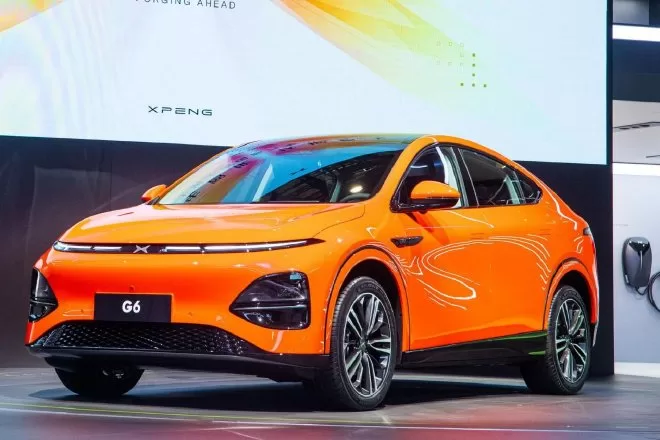
It is worth noting that the Xiaopeng G6 has been on the market for less than half a year, and the price reduction at this time shows the great sales pressure. According to the monthly delivery data released by Xiaopeng Motors, the Xiaopeng G6 has now become a sales leader, accounting for nearly half of the total delivery volume, and is of great significance as a product that has helped Xiaopeng Motors emerge from a low point. Not only the Xiaopeng G6, but also the entire lineup of Xiaopeng P7i started a price reduction promotion in early December, with comprehensive discounts of up to 26,000 yuan (3640$). Subsequently, the Xiaopeng G9 also followed suit with a maximum discount of 19,000 yuan (2660$). Like Xiaopeng Motors, car companies in the current Chinese car market are facing great sales pressure. Even the perennial champion, BYD, is no exception. The price reduction wave in December was initiated by BYD. On December 1, BYD announced that for owners of gasoline cars or those who have ordered gasoline cars, they can enjoy up to 20,000 yuan (2800$) in “gasoline-to-order fund.” Buyers of certain models on the Ocean Network can enjoy discounts ranging from 5,000 yuan (700$) to 18,000 yuan (2520$). This is the second time BYD has introduced substantial discounts within two months. Subsequently, Ideal Motors launched the “December limited-time car purchase financial benefits.” The official stated that from December 1, 2023 to December 31, 2023, customers who order the Ideal L7, L8, and L9 can enjoy a limited-time annual fee rate of 2.5% in December, with the highest subsidy of 36,000 yuan (5050$) for the relevant models. New car forces announced a price reduction in December, including LINGPARK, ZHIJI, AITO, NEZHA, JIYUE, and CHANGAN’s DEEPBLUE, QIYUAN, and CHANGAN UNI. If you think the main participants in this official price reduction are new energy vehicle models, you are wrong. In fact, fuel vehicles are also being reduced in price, and the reduction in price of fuel vehicles is even higher. It seems that in order to increase sales, they are really going all out.
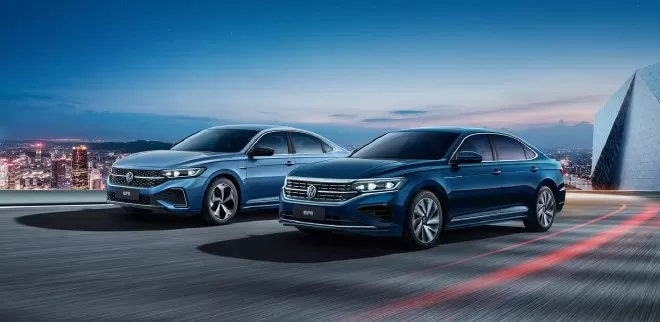
SAIC Volkswagen officially announced the purchase discount policy for its models on December 4. The offer is valid from now until December 31, 2023, with discounts of up to 58,000 yuan (8130$) for models such as the Touareg, Lavida, Tayron, Passat, and Tiguan L. For example, the Touareg has a maximum discount of 58,000 yuan (8130$), the 2024 Lavida has a maximum discount of 30,000 yuan (4210$), the Tayron has a maximum discount of 38,000 yuan (5330$), the Passat has a maximum discount of 40,000 yuan (5610$), and the Tiguan L starts at 169,900 yuan (23820$) for a limited time. In the December limited-time purchase discount activity of FAW-Volkswagen, participating discounted models include Bora, Sagitar, Magotan, T-Cross, Tharu, and Tayron. Consumers who purchase before December 31 can enjoy free commercial insurance, vehicle purchase tax subsidies, and basic maintenance. As a mainstream brand under General Motors, Chevrolet announced price reductions in December, offering up to 60,000 yuan (8410$) in discounts for the purchase of Chevrolet SUVs. In fact, Chevrolet has been promoting sales since March, with discounts ranging from 15,000 to 70,000 yuan (9810$). Recently, sales of FAW Toyota have rebounded, and it is expected to be related to terminal discounts. FAW Toyota officially announced that from December 1-18, models such as Corolla, RAV4, Avalon, Granvia, and Crown Land Cruiser will enjoy limited-time discounts, including a direct subsidy of 5,000 yuan (700$) for vehicle purchase tax, up to 6,000 yuan (840$) in trade-in subsidies, and low down payment/0 interest rate financial plans. The above are just some of the price reduction information from car companies. Brands such as NIO, GAC Trumpchi, and SAIC-GM Wuling all have related discount activities. According to domestic media statistics, more than 20 brands have announced price reductions in December, making “price reduction” the main theme of the December car market. Price wars reflect the KPI anxiety of car companies. In fact, under the escalating price reduction trend in the automotive industry, car manufacturers and dealers are facing sales pressure. As the year-end approaches, there are only a few car companies that have achieved their annual KPI assessment goals, with only Ideal Car Company having completed its annual target. BYD and Geely are in the final sprint stage. Among the sales targets set by traditional car companies for 2023, SAIC Group has the highest target of 6 million vehicles for the whole year, followed by FAW Group with a target of 4 million vehicles, and then Dongfeng Group and BYD with annual sales targets of 3 million vehicles.
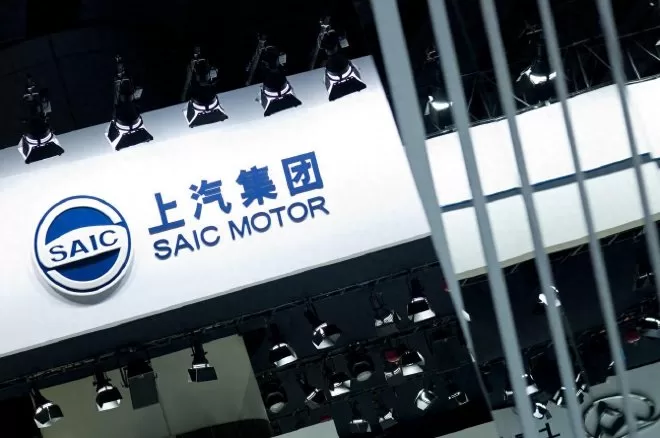
Changan Automobile and GAC Group have annual sales targets of 2.8 million and 2.677 million vehicles for 2023, while Geely Automobile has a target of 1.65 million and Great Wall Automobile has a target of 1.6 million. By November, BYD’s sales were 2.68 million, 89.45% of the annual target of 3 million. It is expected that BYD’s sales in December will reach a new high, easily achieving the target. However, industry insiders generally believe that going from 3 million to 4 million is a challenge, and it will be very difficult for BYD to achieve an annual sales target of 4 million. Geely Automobile’s sales from January to November were 1.536 million, 93.09% of the annual target of 1.65 million. It is expected that Geely’s overall sales this year will exceed 1.7 million, exceeding the target. FAW Group has set a sales target of 4 million, but sales from January to November were 3.398 million, 84.95% of the target. The sales performance is still considered very good. Among them, the sales completion rate of FAW’s luxury brand, Hongqi, is close to 90%, and it is likely that the annual sales target of 200,000 vehicles will be achieved. Changan Automobile’s sales from January to November were 2.338 million, 83.5% of the annual target of 2.8 million; GAC Group’s sales from January to November were 2.2458 million, with an annual target completion rate of 85.06%; and Chery Group’s sales from January to November were 1.666 million, completing 83.30% of the annual sales target. SAIC Group sold 4.38 million vehicles from January to November, completing 73.06% of the annual target; Great Wall Motors sold 1.1182 million vehicles from January to November, completing 69.89% of the annual target. Looking at the completion rate of the annual targets of the traditional car companies mentioned above, only 6 companies have completed more than 80% of their targets. For those companies with a completion rate close to or higher than 90%, there is still a chance. However, for companies with a completion rate of less than 60%, it seems unlikely that they will achieve their annual sales targets. Turning to the new forces in car manufacturing, NIO has been the monthly sales champion among the new forces in car manufacturing this year, with sales exceeding 40,000 vehicles for several consecutive months. From January to November, NIO delivered a total of 325,700 new vehicles, achieving the sales target of 300,000 vehicles for the whole year in advance. Both XPeng and Lixiang have sold over 120,000 vehicles by the end of November, completing more than 60% of their annual sales targets. At the beginning of 2023, XPeng CEO He Xiaopeng mentioned in an internal letter that the delivery target for 2023 is to deliver nearly 200,000 vehicles for the whole year. Approaching the end of the year, XPeng has started a new round of promotions to achieve better sales performance by the end of the year. Lixiang achieved product upgrades in 2023, and the high-positioned C-series models became the main selling products, which increased the average selling price per vehicle and directly improved Lixiang’s profitability. In the third quarter of this year, Lixiang’s gross profit margin turned positive for the first time, reaching 1.2%. According to Lixiang, the company’s operating cash flow has turned positive, and the gross profit margin in the fourth quarter will be higher than the disclosed 1.2% in the third quarter, gradually increasing next year. It is expected to achieve net profit turning positive by the end of 2025 or early 2026.
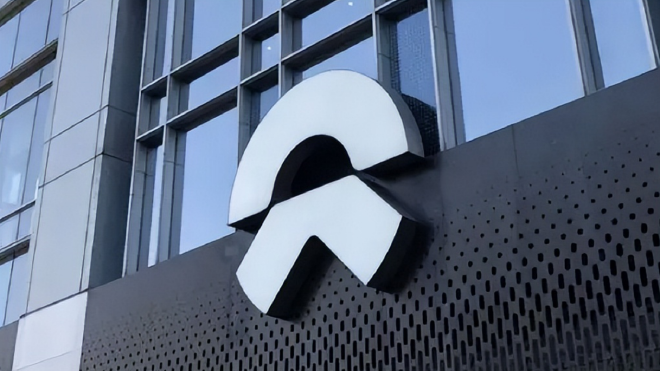
NIO sold 142,000 vehicles from January to November, achieving only 57% of the annual sales target. Despite being unable to meet the annual target, they have surpassed Li Bin’s goal to “overtake Lexus by 2023.” Nezha Automobile, on the other hand, is not doing well. As the only brand among the new forces to experience a decline in sales, its cumulative sales from January to November were 122,000 vehicles, a 15.2% decrease from the same period last year. It seems that the competition in the new energy market has become fierce, with traditional car companies such as BYD and Geely squeezing Nezha, weakening its cost-effectiveness. Looking at the completion rates of the annual sales targets mentioned above, it is clear that car companies are showing uneven performance. Industry insiders believe that the completion of the sales targets is the result of car companies adopting measures to “sacrifice profits to maintain sales.” According to data released by the China Passenger Car Association, the cumulative retail sales of passenger cars in China from January to November 2023 reached 19.345 million units, a 5.3% year-on-year increase. Regarding the month-on-month growth in retail sales in November, Cui Dongshu, Secretary-General of the China Passenger Car Association, believes that the booming state of the car market is driven by price reductions. He also stated, “The core feature of this year’s overall car market growth has been a consistent upward trend, which is different from previous years. The main reason for this is that car companies have achieved strong growth by reducing prices.” According to the data from the National Bureau of Statistics compiled by the China Association of Automobile Manufacturers, the operating income of the automobile manufacturing industry was 7114.99 billion yuan in the first three quarters of 2023, an increase of 10.4% over the same period. However, the profit of the automobile manufacturing industry was 345.99 billion yuan, an increase of only 0.1% over the same period. The profit margin of the automobile manufacturing industry was 4.9%, which is still lower than the average profit margin of 5.6% for the entire industrial enterprises. It appears that the bright sales data of the auto companies are actually a reflection of the vicious cycle of “only sales, not profits” and the anxiety caused by the pressure of sales combined with the slowdown of transformation. Will the price war continue in 2024? Looking back at the automobile market in 2023, the price war has become the keyword throughout the year. At the beginning of the year, against the backdrop of the slowdown in the growth rate of new energy vehicle sales, Tesla launched the first shot of the price war, followed by brands such as Wenshi and Xiaopeng, officially opening the curtain on this year’s price war. By March, some models of Dongfeng Citroen offered discounts of up to 90,000 yuan (12620$) after local government and enterprise subsidies, and this news quickly swept through the entire automotive industry, bringing the price war to its peak. Other car companies and localities followed suit, setting off a significant price reduction wave for traditional fuel vehicles. The original intention of the “price war” was to boost local car consumption, but the results have plunged the auto industry into chaotic competition, and car companies and dealers have been complaining incessantly. In order to control the spread of price wars, 16 car companies jointly signed the “Commitment to Maintaining Fair Competition Market Order in the Automobile Industry” at the 13th China Automobile Forum hosted by the China Association of Automobile Manufacturers in July, promising “not to disrupt the fair competition order in the market with abnormal prices.” However, the above clause was quickly deleted.

As we enter August, car companies are gearing up for the traditional peak season of car sales. A new round of price wars has begun, with more than 10 car companies, including SAIC Volkswagen, Leapmotor, Tesla, and NIO, joining the price-cutting trend in the form of cash discounts and increased car purchase benefits. SAIC Volkswagen’s Touareg series offers the highest discount of up to 60,000 yuan (8410$), while the maximum discount for the Leapmotor 001 reaches 37,000 yuan (5190$), showing a significant reduction in prices. The price war of “Golden September, Silver October” is expected to continue until December, and will continue throughout 2023. Regarding the year-end price cuts by many car companies, industry experts believe that the December car market will continue to improve, with production and sales volume experiencing an end-of-year surge. However, the industry should also pay attention to rational competition. Chen Shihua, Deputy Secretary-General of the China Association of Automobile Manufacturers, said that on the one hand, car companies aim to “exchange price for quantity,” trying to get sales volumes as close as possible to the sales targets set at the beginning of the year. On the other hand, reducing product prices to gain a larger market share is not the best competitive strategy, and more attention should be paid to improving quality. Prior to this, NIO CEO William Li criticized the price reduction and promotion behavior of car companies, stating that “if the increase in data is achieved at the expense of profit or even negative gross profit, this growth is worthless, and what is obtained by exchanging price for quantity is just ‘virtual fat.'” Cui Dongshu, Secretary-General of the China Passenger Car Association, pointed out that some car companies have relatively large year-end price promotions in order to maintain sales levels. Using profits to boost sales is also to ensure the effective operation of their industrial chain. As for the forecast of passenger car sales in 2023, Cui Dongshu predicts that the total sales of narrow-definition passenger cars in China this year is expected to exceed 25 million, and the overall car sales may reach a new high of 30 million, setting a historical record. Looking ahead to 2024, the China Passenger Car Association predicts that the overall domestic retail sales of passenger cars will be 22.2 million, a year-on-year increase of 3%. If passenger car exports contribute 4.3 million units of sales, the overall narrow-definition passenger car sales will reach 26.5 million units, a year-on-year increase of 5%. Among them, the wholesale sales of new energy passenger cars are expected to reach 11 million units, with a net increase of 2.3 million units, a year-on-year increase of 22%, and a penetration rate of 40%, maintaining strong growth momentum. However, most industry insiders predict that the survival of car companies will be even more difficult in 2024. Previously, NIO’s William Li warned employees that the market in 2024 will be more fierce, and reminded them to “abandon fantasies about the intensity of market competition.”
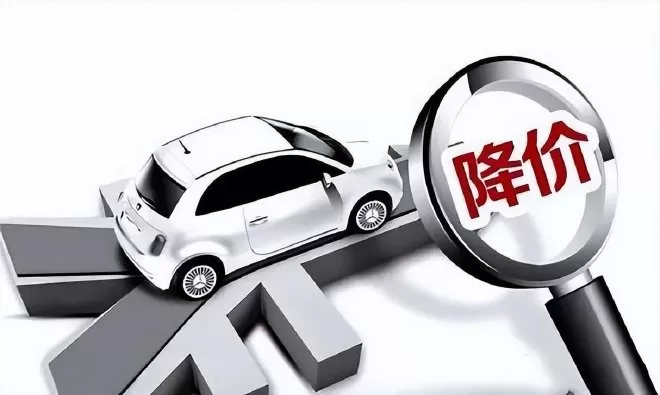
At the previous Guangzhou Auto Show, several auto industry executives openly stated that price wars will continue to be the main theme of the 2024 car market, and that price wars have become an irreversible trend. At the same time, next year will be a crucial stage for the “elimination round” of new energy vehicles. Another issue worth noting is that future sales of new energy vehicles may continue to grow, but at a slower pace. Recently, the China Association of Automobile Manufacturers also pointed out that the 2024 new energy vehicle market faces certain structural pressure from demand groups. Therefore, with the current market size reaching a certain level, the growth of new energy vehicles will slow down. The “same price for oil and electricity” strategy has played a certain supporting role in the current market, but in the short term, the profit levels of relevant companies are under significant pressure. From the current performance of the new energy market, the growth rate of pure electric vehicle models has slowed significantly, while the growth rate of plug-in hybrid models is higher, but the month-on-month trend is slowing down. Although extended-range electric vehicles are growing significantly, the overall scale is limited. Therefore, starting from the second half of this year, auto companies are paying more attention to personalized niche markets, such as hardcore off-road, MPV, electric supercars, etc. In addition, intelligence is also a hot direction for the differentiation and survival of auto companies, including intelligent driving and intelligent cabins. In conclusion, although price wars are currently the main means of promotion for auto companies, more and more companies are starting to reflect on the problems. As consumers gradually become more rational and mature in their car purchases, price reductions and promotions are no longer effective means of attracting them. Consumers are more concerned about performance, configuration, safety, after-sales service, and other aspects when choosing products, rather than just price.